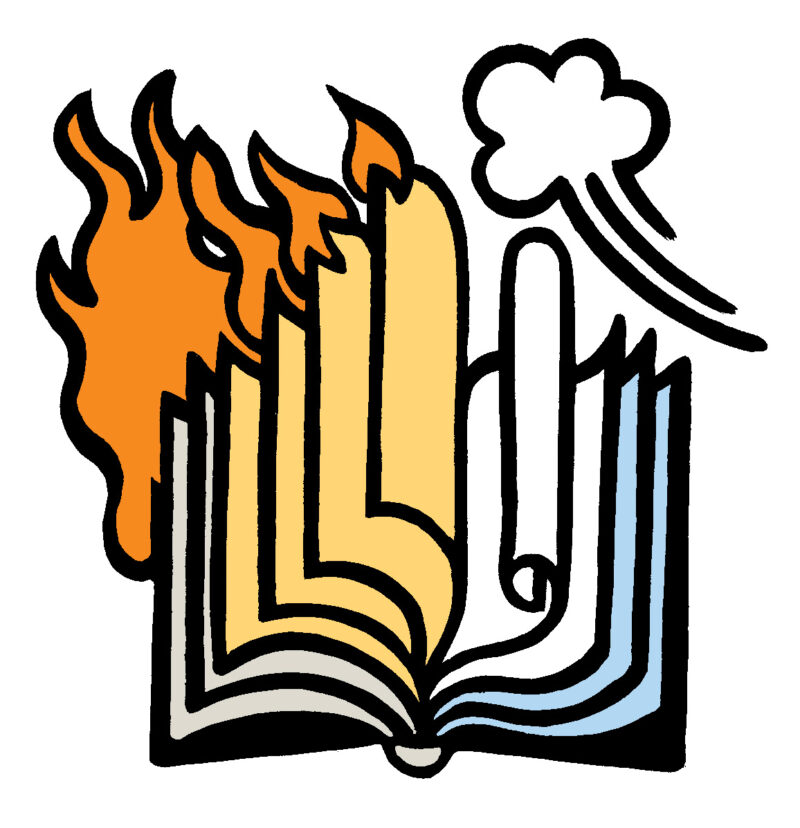Some of us are just now waking up to the idea that it won’t go on: subways and parkways, Starbucks and Target, MMR shots and mug shots. All the things we call civilization may be swept away by rising waters, or drought, or roving RNA. What do we do with that knowledge? How do we picture our already-happening doom?
Franny Choi comes as close as any recent American poet to drawing that picture. Her collection begins by gathering scope, in poems of long lines, of collected atrocities: “brimstone eating California,” “the sky, shocked with dying” over “the graves of reefs,” while “Dispatches from Kenosha, // Louisville, Atlanta, arrive, arrive / like a steady kickdrum of sparrows / spatchcocked by gravity.” Choi goes on, as if she could create a pile of words big enough to serve as a barricade, to protect human beings from ourselves. Many of the poems feel like epitaphs, or ineffective apologies. “I’ve been, undoubtedly, an American,” she writes, “and done practically nothing to stop it.”
These lists, these regrets, these intense, even impossible demands accumulate around the poet in distress as they might accumulate around us all. “I know I should want to be torn open,” Choi writes, “by the failures of hope, but here’s what I want: // a tight circle around everyone I love; / a stove that doesn’t burn.” Who wouldn’t agree? Who can ignore—but who can concentrate full-time on—the big and burning now?
Choi’s elders saw the end of another world: the middle segments of Choi’s third book consider the Japanese occupation of Korea, the Korean War, and the divided nation. “If the land in me could speak / to the land I live on, what would it say?” Choi asks. “Maybe I’m sorry. Or, where does it hurt?” Her American sense of worldwide catastrophe feels like the logical sequel to the all-around catastrophes of “comfort women” (a term she uses), of refugees. Choi takes on second- and third-generation wounds, with words recurring as grief does, recycling lines from one poem as titles for others, and repeating one of those titles (“Upon Learning That Some Korean War Refugees Used Partially Detonated Napalm Canisters as Cooking Fuel”) four times.
Those lists and titles point back to the present. Choi’s voices are overwhelming, and overwhelmed, “counting my life mostly / as a series of small, terrible stories” within the larger terrible stories of ecological devastation, endless international conflict, police violence, exhausted soil, and oil-plagued seas. They mimic our own sense of overwhelm.
And then they don’t. The best parts of Choi’s new volume—making good on her poem title “Science Fiction Poetry”— come when she starts to envision how something might come after us and look back at us. The future may also see how we “clawed down walls / & ex-learned harm / & nixed cruel laws / & crowdsourced grace / & ground teeth down.” Children in tropical Calgary and Fairbanks may walk through the “as-yet- / unbuilt museum / of what we had to survive.” They may ask: “What was it like to live so gridded? So trackchanges?” But they may exist to look back: they may be here, where “there are crises every day, and there’s also bread / bubbling on the counter, pickled beans, a cat who comes home.” There my be a future; there may be a home.
Choi started out as a performer: her lines now carry both the precision of print and the directness of the stage. She addresses not only blood family but also poetic allies such as “sam” (sax), “Nate” (Marshall), and “Danez” (Smith, her partner in the popular podcast VS). Her work isn’t subtle: it is, perhaps, our “Howl.” She addresses, with these poets at her side, me and you and anyone else whose “loneliness” makes us believe we’ve “seen / the future.” And it speaks to our future: if and when we can stand the heat, we will not stand alone.
Publisher: Ecco/HarperCollins Page count: 144 Price: $25.99 Key quote: “My sister calls, and it’s already too late for things to be better.” Shelve next to: Octavia Butler, Cathy Park Hong, D. A. Powell, Danez Smith Unscientifically calculated reading time: Two fits of terror, one morning away from all news





